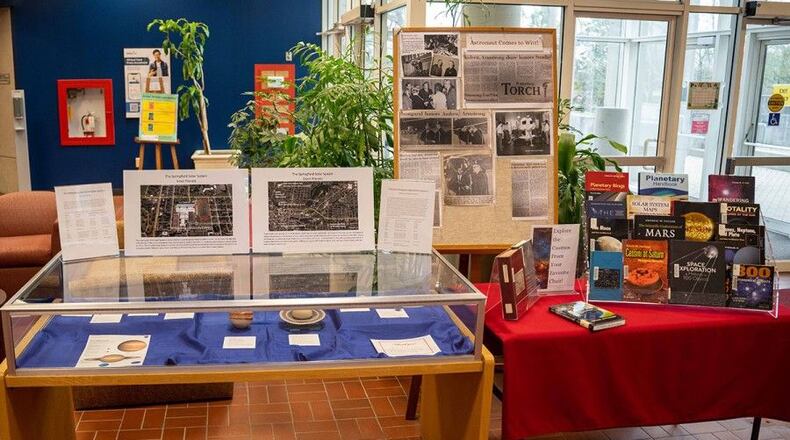Under the guidance of Stacy Porter, assistant professor in environmental science, Dan Fleisch, professor emeritus of physics, and support from the WittClipse planning team, the event will be held from 11 a.m. to 4 p.m. along the concourse of the Edwards-Maurer Field, part of the Health, Wellness & Athletics Complex.
WittClipse is the “brainchild” of a committee that includes experts in astronomy, meteorology, climate change, physics and more, who have joined together to present a series of activities and events.
Weather permitting, the activities will include raffles, space-themed food, screen printing, temperature sensors, cyanoprints, blackout poetry, pinhole/colander viewers, button making, shadow bands, a remotely piloted vehicle, telescope, a model of the solar system, giant Jenga, corn hole and other games.
Food will also be available at the concession stand, including eclipse cookies. Food vouchers will be given to the first 300 students. There will also be free stickers featuring the WittClipse 2024 logo, as well as t-shirts, tote bags and other items to be screen printed with the commemorative logo.
The university will have safety glasses available for the campus community, and additional glasses will be available to students at the Benham-Pence Student Center desk, in residence halls, in the Thomas Library, and at the Wittenberg Police Department.
Fleisch will have a display set up in the Steemer and along the concourse beginning at 8:30 a.m. and will be in the observatory from 9 a.m. to 2 p.m. if anyone wants to stop by to learn more about eclipse viewing.
Fleisch’s scaled model of the solar system, which was installed on campus and at select locations in the surrounding community, consists of 15 planetary information stations located at the proper distance from the model Sun, which will be represented by a three-foot sphere in the Edwards-Maurer Field, the Steemer and the Thomas Library. Surrounding organizations agreed to host stations for Fleisch as well, including the Springfield Museum of Art featuring Saturn, the Clark County Public Library hosting Uranus, and the Westcott House has both Neptune and Pluto.
The chapel will also hold a brief service of thanksgiving for creation the day of the eclipse from 2 to 2:30 p.m. in Weaver Chapel that will include prayer, readings about creation and eclipse cookies.
Fleisch, who specializes in electromagnetics and space physics including astronomy, led several conversations as the eclipse gets closer “to help everyone understand what will transpire during this astronomical event.” Leading up to the event, Fleisch visited several local and regional schools and service organizations to present information about the Sun, the eclipse and how people can make sure they view the eclipse safely.
The last public event will be Sunday, April 7, at Weaver Observatory, where Fleisch will discuss “Total Solar Eclipse Viewing Tips and Safety.”
For more information, visit www.wittenberg.edu/eclipse.
About the Author

